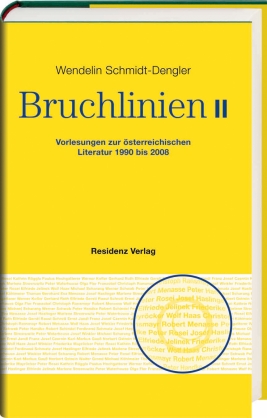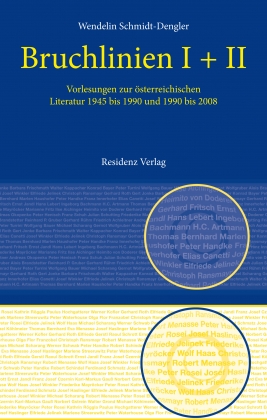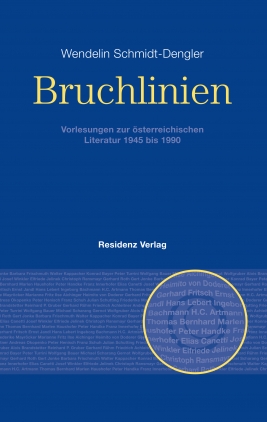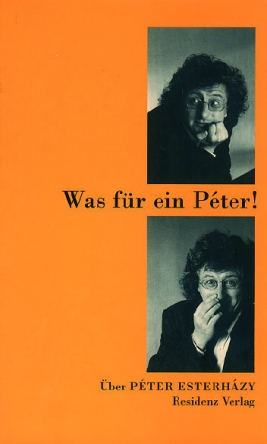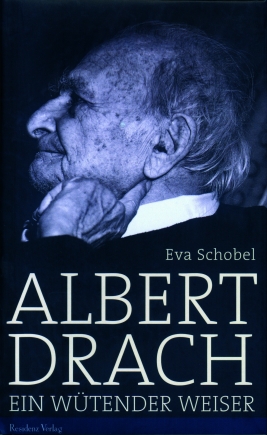Der Band „Bruchlinien II“ versammelt Vorlesungen zur Literaturgeschichte, -theorie und Werkanalyse. Schmidt-Dengler spürt einem „österreichischen Intertext“ nach. In dessen Brennpunkt stehen Thomas Bernhard, Peter Handke, Christoph Ransmayr und Werner Kofler ebenso wie Elfriede Jelinek, Marlene Streeruwitz, Kathrin Röggla oder Olga Flor. Ein grandioses, mitreißendes Kompendium.
[Quelle: Ingeborg Waldinger, WIENER ZEITUNG]
18 Jahre österreichische Literatur – außerordentlich lustvoll analysiert und beschrieben.
[Quelle: Johannes Preßl, BIBLIOTHEKSNACHRICHTEN]
Schmidt-Dengler verhandelt Literatur, ohne sie dozierend abzuhandeln. Man ist versucht, ihn „Literaturflüsterer“ zu nennen, da er mit der Literatur spricht, wenn er (auch) über sie spricht. Er besitzt das seltene Talent, das Schwierige einfach zu erklären, ohne es zu vereinfachen.
[Quelle: Peter R. König, ÖGL]
Das Buch erweist noch einmal alle Vorzüge von Schmidt-Denglers Literaturanalysen: wie souverän er sein Material erzählen kann, ohne darin zu versinken, wie selbstverständlich die Linien zur antiken Mythologie gezogen werden, wie bruchlos bei der Betrachtung eines Werkes die Vergleiche innerhalb des Oeuvres des jeweiligen Autors/der jeweiligen Autorin, aber auch zu anderen AutorInnen einfließen, aber auch die sich nie in den Vordergrund spielende Methodenvielfalt.
[Quelle: Cornelius Hell, LITERATURHAUS.AT]
Für Liebhaber österreichischer Literatur unverzichtbar!
[Quelle: Fritz Haselsteiner, MOSTVIERTEL MAGAZIN]
Nie wurde der Zusammenhang von österreichischer Identität und österreichischer Literatur so augenfällig wie nach 1945. Und niemand hat diesen Zusammenhang zwischen Literatur und den mentalitätsgeschichtlichen und politischen Rahmenbedingungen, unter denen sie entstanden ist, so deutlich herausgearbeitet wie Wendelin Schmidt-Dengler.
[Quelle: AHS AKTUELL]
Wendelin Schmidt-Dengler wurde als erster Geisteswissenschaftler und Philologe 2007, also ein Jahr vor seinem verfrühten Tod, als Wissenschafter des Jahres ausgezeichnet. Wer seine Texte zur österreichischen Literatur in den beiden Bänden Bruchlinien liest, versteht wohl, warum.
[Quelle: Klaus Ebner, LITGES.AT]
